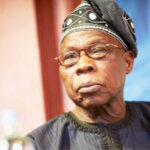Once upon a leader whose entry, as a convert into the fold of Islam six years after the religion was proclaimed, changed the oppressive tide which Makkan pagans hitherto subjected Muslims to. He was Umaru bn al-Khattab (RA), the second Khalifah (Caliph) in Islam and one of the most awesome companions of the Prophet Muhammad (SAW). Umar (RA) was the father of Hafsah (RA), one the Prophet (SAW)’s wives. Born in 583AD, Umar (RA) also nicknamed “Amirul Mu’mineen” (meaning, Commander of the Faithful) was 13 years younger than the Prophet (SAW).
Umar (RA) who succeeded Abu Bakr as-Sidiq in the leadership of the Muslim ummah presided over it as the second Khalifah for 10 years (634-644AD). He was uncompromising, yet, fair to all. He is believed to be the most successful Khalifah in Islam. One leadership style that made him stood out among other Khulafa (plural of Khalifah in Arabic) was the importance he attached to the welfare and needs of citizens. As Khalifah, Umar (RA) used to move around incognito at night simply to find out the living conditions of his people with a view to addressing their problems.
One day, as Khalifah Umar (RA) walked through the streets at night, he heard some children crying from inside an apartment. He approached the entrance of the house and knocked at the door. A woman came up and Umar (RA) greeted her saying “Assalamu Alaykum.” After she responded, the Khalifa asked to know why the children were crying. She told him they were crying because there was no food for them. Umar (RA) who saw a pot on fire requested to know what she was cooking. The woman said, “Pebbles and water;” adding that “I told them I as cooking food so that, after sometime, sleep would overtake them while the pot remained on the fire.” Umar (RA) was pained by this situation and quickly told the woman that he would return to her within the shortest possible time. The predicament of this starving family would never have come to Umar (RA)’s knowledge if he, as the Khalifa, hadn’t deployed the incognito strategy of taking and feeling public pulse.
Being an altruistic and just leader, Umar (RA) went straight to the Bait ul-Mal (the Arabic word for treasury) and carried on his back and shoulders some food items for the starving family. After delivering the food commodities to the woman, the Khalifah waited until food was cooked and the children had eaten. The children who would have gone to sleep thereafter had little time to play before finally going to bed. Umar (RA) felt very happy that he was able to take this burden off his neck; a serious matter that could, otherwise, have remained a liability for him (being the Khalifah) to liquidate on the Day of Judgement. While leaving, he told the woman to go to see the Amirul Mu’mineen the following day.
- Shayi business crumbles: Customers abandon noodles, eggs, milk
- Halting the tide: Rechannelling & optimising potential of youths in Northern Nigeria
When the woman got to where she went to meet Amirul Mu’mineen, she saw Umar (RA) and said she wanted to see Amirul Mu’mineen. Umar (RA) replied, “I’m the Amirul Mu’mineen.” He then told the woman to come to the treasury every month to collect what is due, as a matter of right, for the feeding and well-being of the children. A dutiful leader like Umar (RA) is rare in history. He considered the position of khalifah as a trust that must not be betrayed.
Sadly though, contemporary Nigerian leaders do not seem to be aware of the huge benefits they stand to gain by borrowing from the leadership ‘tree’ planted by Khalifa Umar (RA) and sustained in its orthodox form up to the end of the Ummayad dynasty in 750AD. Today, many local government (LG) chairmen who are the nearest set of political leaders to the masses do not sleep in their administrative domains. How then can a LG chairman who perpetually resides in the state capital or far away Abuja feel the pulse of the people whose mandate brought him or her to office? These LG headquarters were the same places (which then had no electricity) that colonial District Officers stayed to rule us.
Since they failed to feel public pulse, today’s LG chairmen in most states in Nigeria do not know how many school-age children couldn’t go to school because of unpaid fees. They don’t also know how many widows, orphans, the elderly, the physically-challenged, and law-abiding adults went to bed without dinner the previous night. A local government chairman who does not know when last his people had electricity or water supply (where such utilities exist) or which bridge in the LG area is on the verge of collapse is not likely to have knowledge of the extreme expressions of poverty, deprivation, and neglect among his people. For the reason that our itinerant (or better said, ‘nomadic’) LG chairmen see nothing wrong in remaining insensitive to the needs and challenges of survival confronting their communities, they even fail to realize that people have died from malaria or typhoid fever because they couldn’t afford the cost of treatment.
Leaders must stop taking leadership for a joke. May Allah guide our leaders to see themselves as ‘shepherds’ who would give account; explaining why the ‘flocks’ (i.e. citizens) under their domain slept on hungry stomachs or died of preventable and curable diseases, amin.
 Join Daily Trust WhatsApp Community For Quick Access To News and Happenings Around You.
Join Daily Trust WhatsApp Community For Quick Access To News and Happenings Around You.


